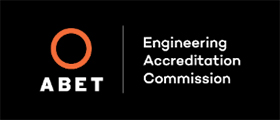Civil Engineering
The Bachelor of Science (BS) in Civil Engineering degree program at York College of Pennsylvania is the first step in a career with a meaningful daily impact on the everyday lives of people across the globe. Position yourself at the forefront of creating and maintaining the physical frameworks of our communities, such as roads, bridges, airports, tunnels, dams, and essential water and sanitation systems.
Our bachelor’s degree in Civil Engineering offers a broad-based education and a built-in one year co-op work experience to prepare you for work in any aspect of civil or environmental engineering. Coursework emphasizes sustainable engineering and design practices, ensuring that graduates are ready to contribute to in-demand roles now and in the future.
York College Civil Engineering values putting theory to practice. Along with personalized instruction, participate in hands-on projects, interact with industry practitioners, and receive support from esteemed faculty passionate about your success.
/prod01/ycp-cdnpxl-media/media/york-website/academics-school-kinsley-engineering-math-sciences/engineering-and-computer-science/Engineering-Student.jpg)

/prod01/ycp-cdnpxl-media/media/york-website/academics-school-kinsley-engineering-math-sciences/engineering-and-computer-science/civil/civil-engineering.jpg)
/prod01/ycp-cdnpxl-media/media/york-website/offices-and-departments/office-of-communications/news-images/2018-news/CivilEngineeringCenterRibbonCutting.jpg)
/prod01/ycp-cdnpxl-media/media/york-website/academics-school-kinsley-engineering-math-sciences/engineering-and-computer-science/computer-science/ComputerScienceLabsThumbnail.jpg)
/prod01/ycp-cdnpxl-media/media/york-website/academics-school-kinsley-engineering-math-sciences/engineering-and-computer-science/facilities/Engineering-classconductor-YCP1.jpg)
/prod01/ycp-cdnpxl-media/media/york-website/academics-school-kinsley-engineering-math-sciences/engineering-and-computer-science/facilities/Engineering-MachineShop-YCP1.jpg)

